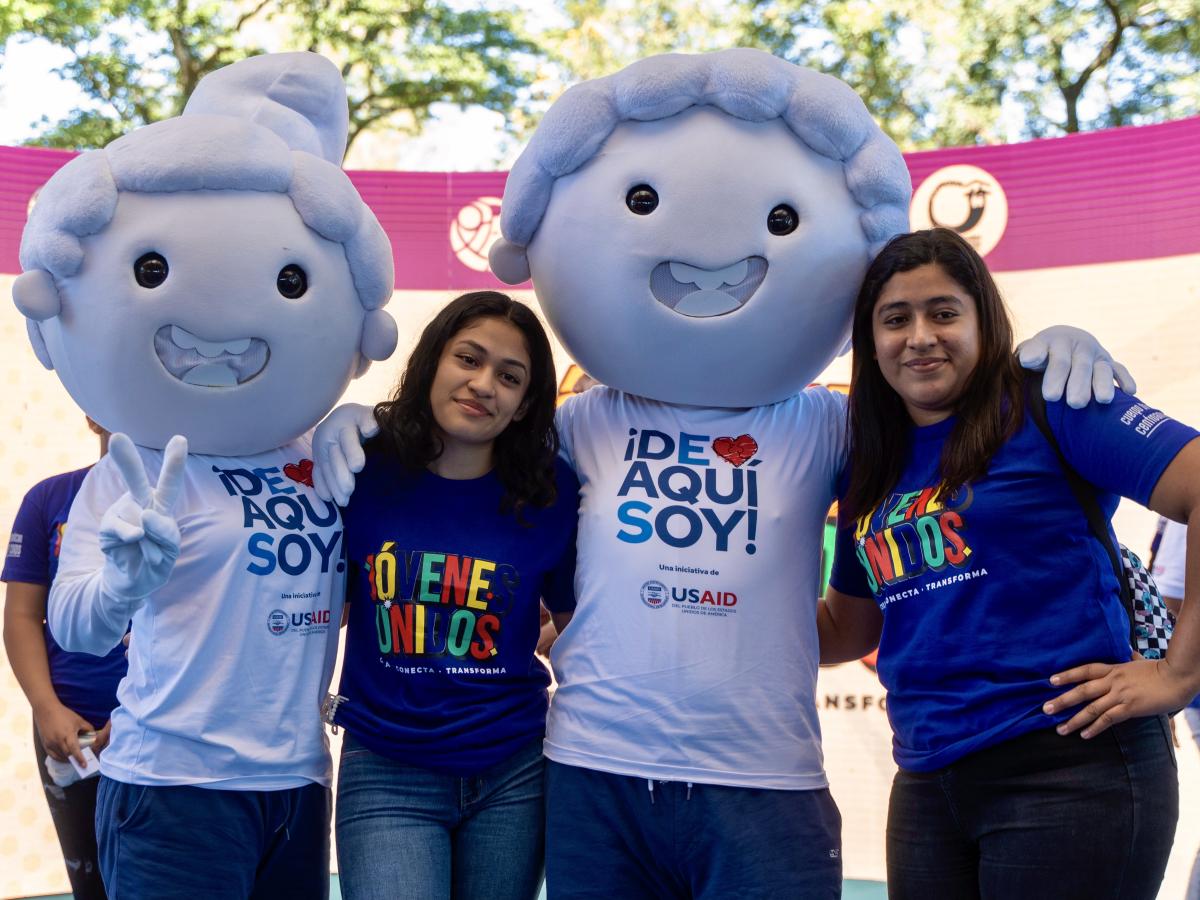New CASC Project to Unite Salvadoran Youth in Service

Salvadoran youth gather at the Jóvenes Unidos project launch in San Salvador, El Salvador.
On October 25, 2024, in San Salvador, El Salvador, USAID and Glasswing International in alliance with the Salvador del Mundo Foundation (FUSALMO) and the Salvadoran Association for Rural Health (ASAPROSAR) launched a new project under the Central American Service Corps (CASC) initiative called Jóvenes Unidos.
Jóvenes Unidos will help generate leadership potential, an optimistic outlook, and a sense of belonging among youth. Over the course of five years, the project will work directly with 3,700 young people, including those with disabilities, in the Santa Ana, San Salvador, and San Miguel areas to develop the skills to make meaningful contributions to their communities and address the range of challenges they face.
Jóvenes Unidos participants will complete a three-part service year consisting of (1) technical and soft skills training; (2) a six-month community service internship; and (3) support to connect with education, employment, and civic engagement opportunities beyond the life of the program.
In addition to investments from Glasswing International, FUSALMO, and ASAPROSAR, Jóvenes Unidos will leverage support services from youth organizations, civil society, the private sector, local government, development banks, and other donors.
Learn more about the impact of CASC projects in El Salvador and other countries.

Two young Salvadoran women pose with USAID’s De Aqui Soy mascots at the Jóvenes Unidos project launch in San Salvador, El Salvador.
Youth Highlight Their Role in El Salvador’s Development
On October 9, 2024, Skills for Employment Project youth participants shared their experiences, challenges, and perspectives on youth employment in the panel discussion, “Young People Are Ready for Change; Are Business Leaders Also Ready to Commit?” as part of the 12th Sustainability and Corporate Social Responsibility Week conference.
Hosted by the Business Foundation for Social Action (FUNDEMAS), the week-long conference brought together more than 2,500 local and international stakeholders from the private sector, government, academia, and civil society organizations to discuss strategies, promising practices, and lessons learned to advance economic development and sustainability.
The panel discussion featured four young people who have received technical and life skills training through the project along with representatives of companies Sherwin Williams, Applaudo Studios, RSM, and the Salvadoran Banking Association.
USAID’s Skills for Employment Project is helping address the hiring and training demands of Salvadoran companies through training programs that build the technical and life skills of youth and returned migrants and that offer job placement support to facilitate their entry into the workforce.
Yoselin Fuentes, who completed the Waiter, Bartender, and Barista training in Santa Ana, shared, “My dreams were put on hold because of the pandemic. It caused me a lot of psychological, physical, and mental harm. The importance of this project was that it opened a path for me and filled me with hope. These projects not only empower young people, but also entire families.”
Krissia Guzmán, a returned migrant who completed the Category 4 Electrician course, said, “To bridge the generational gap, adaptability and willingness to change is important. As young people, we must understand that the previous generation did not learn in the same way we did, but with the new knowledge we have acquired, we can create a symbiosis between the experiences they already have and what we are learning today.”
Alexis Cartagena, who completed the Professional Cooking training in Santa Ana added, “Young people have the desire and the initiative. We just need to find that first job where we can show all the skills we have as well as the enthusiasm we have for learning and being part of an inclusive environment.”
The youth panelists also noted the gap between formal education and skills and competencies needed by employers, highlighting the importance of innovative programs that respond to the needs of demographic groups and that combine technical skills with life skills to better prepare them to succeed in the workforce.
Private sector representatives discussed trends in hiring, the skills that they look for in prospective employees, and ways in which they are trying to bridge the gap between company needs and youth expectations. The panel concluded with a call to action to create strategic partnerships between training service providers and the private sector to ensure that workforce development programs are aligned with the needs of the labor market and facilitate the transition of young people from training to employment.

Salvadoran youth and private sector representatives participate in a panel discussion on youth employment.
